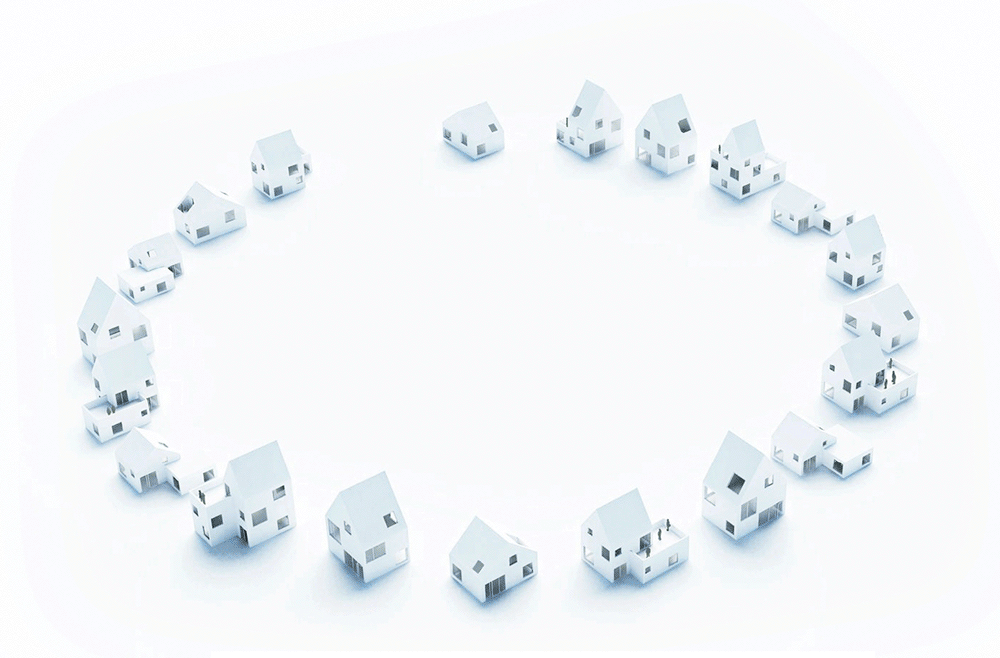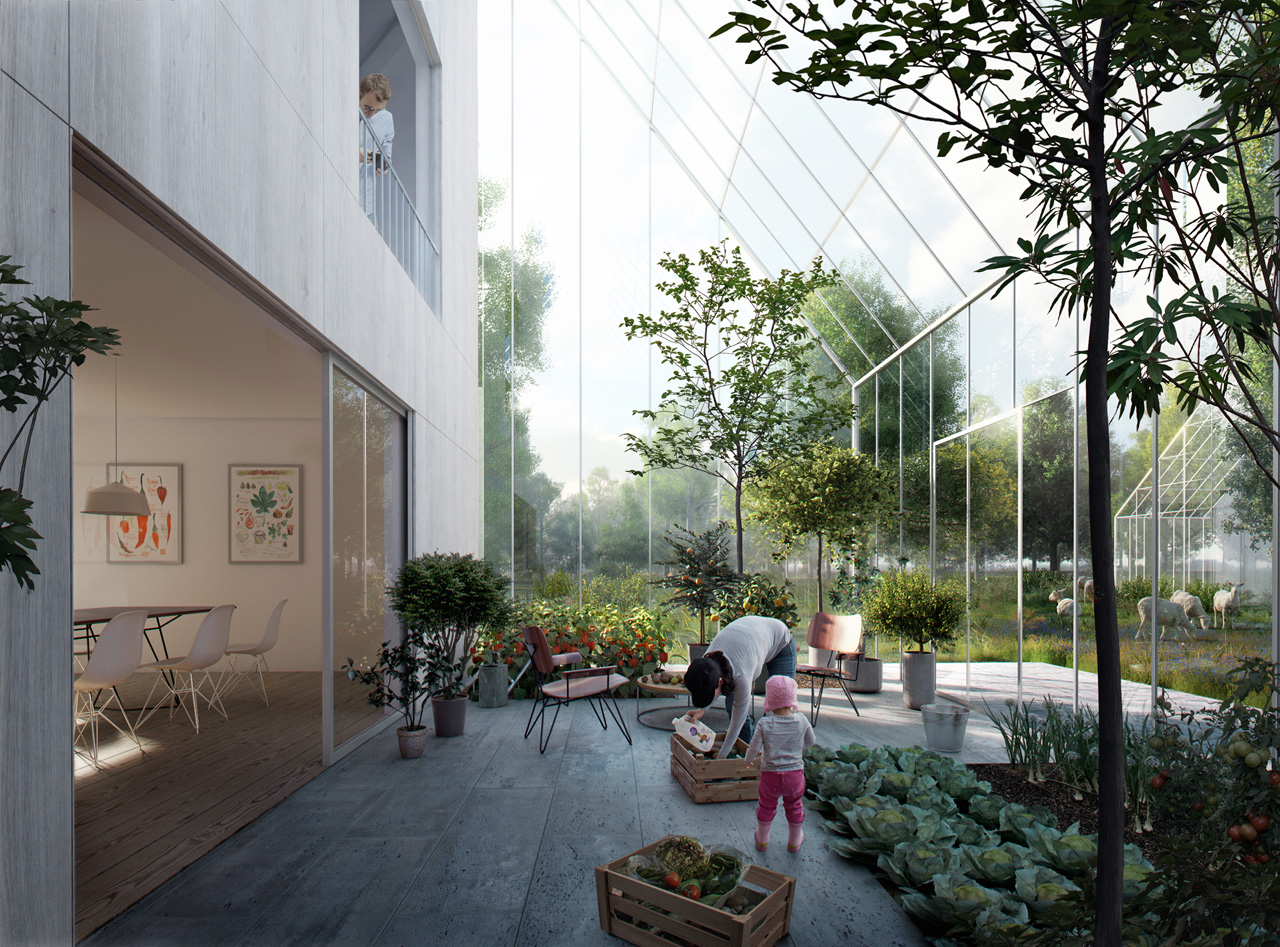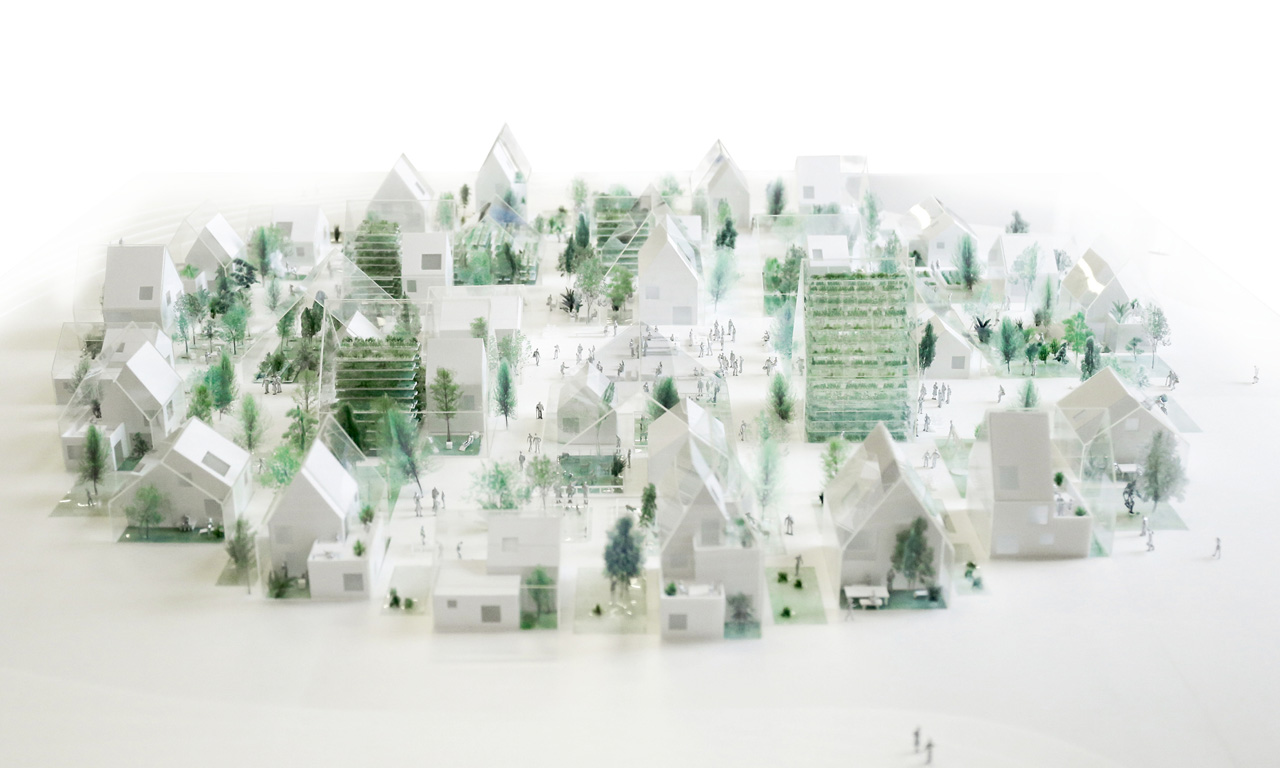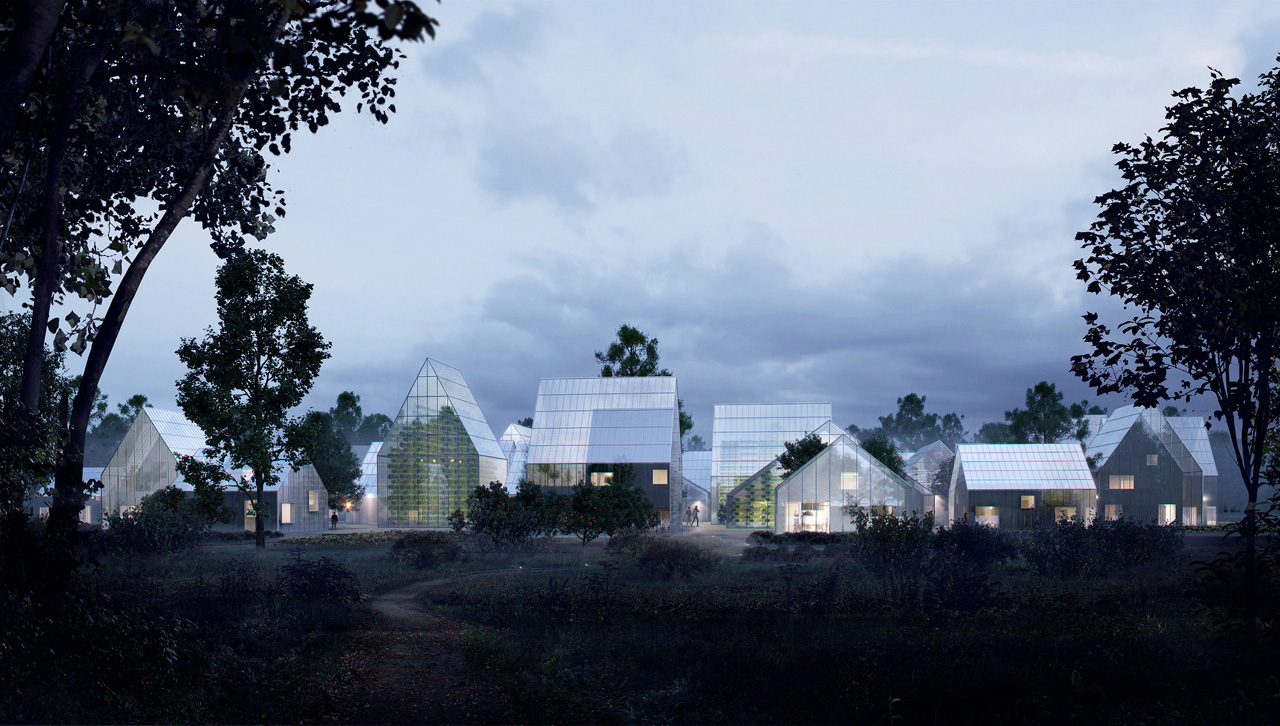If you live inside one of the houses in a new neighborhood being
built in an Amsterdam suburb, your dining room might be next to an
indoor vegetable garden. Outside, you'll have another seasonal garden.
And down the street, almost everything you eat will be grown in
high-tech vertical farms.
The neighborhood will be the first ReGen Village,
a new type of community designed to be fully self-sufficient, growing
its own food, making its own energy, and handling its own waste in a
closed loop.

Any household waste that can be composted will feed livestock or
soldier flies. The soldier flies will feed fish, and fish waste will
fertilize an aquaculture system that produces fruit and vegetables for
the homes. Seasonal gardens will be fertilized by waste from the
livestock.
By using the most advanced methods for growing food—a combination of
aeroponics, aquaponics, permaculture, food forests, and high-yield
organic farming—the neighborhood will grow many times more food than a
traditional farm of the same size, with fewer resources. Aquaponics, for
example, can produce 10 times as much produce on the same amount of
land, with 90% less water.
"We anticipate literally tons of abundant organic food every
year—from vegetables, fruit, nuts, legumes, fish, eggs, chicken, small
animal dairy and protein—that can continually grow and yield in the
vertical garden systems all year long as supplement to the seasonal
gardens and farming adjacent," says James Ehrlich, CEO of ReGen
Villages, the California-based developer, which will also manage the
neighborhood-slash-farm. The company partnered with Effekt, a Danish
architecture firm, on the design.

The community will also produce its own energy, using a mixture of
geothermal, solar, solar thermal, wind, and biomass. "We're looking at
some very interesting technologies for small-footprint biomass that can
take surrounding farm waste and turn that into a consistent energy
source in a way that can power these communities in northern Europe even
in the dead of winter," Ehrlich says. A smart grid will distribute
power efficiently, sending it to a carport to charge shared electric
cars as needed.
A bio-gas plant will turn any non-compostable household waste into
power and water. A water storage system will collect rainwater and gray-water and redistribute it to seasonal gardens and the aquaponic
system.
It's the first of a network of similar communities that ReGen plans to build around the world.

"We're really looking at a global scale," he says. "We are redefining
residential real-estate development by creating these regenerative
neighborhoods, looking at first these greenfield pieces of farmland
where we can produce more organic food, more clean water, more clean
energy, and mitigate more waste than if we just left that land to grow
organic food or do permaculture there."
The first 100-home village is on the outskirts of Almere, a quickly
growing town 20 minutes by train from Amsterdam. Inside Almere, the
company is also building a scaled-down version with 35 condo units. The
company also has more projects planned in Sweden, Norway, Denmark, and
Germany, but plans to expand everywhere.
"We're really looking at starting off as the Tesla of eco-villages,"
Ehrlich says. "That's the idea. So we're coming out as a little bit
higher-end for Northern Europe." Next, the company wants to adapt the
system for arid climates such as the Middle East.

"We tackle the first two hardest climate areas," he says. "Then from
there we have global scale—rural India, sub-Saharan Africa, where we
know that the population is going to increase and also be moving to the
middle class. If everybody in India and Africa wants the same kind of
suburbs that we've been building so far, the planet's not going to make
it."
Ehrlich, who also works as an entrepreneur-in-residence at Stanford
University and as a senior technologist there, was inspired by a 2013 UN report that argued for the creation of self-sufficient communities.
In Almere, the village is likely to grow about half of the food that
the community eats—it won't grow coffee or bananas, for example. It will
also feed energy back to the local grid. But in some locations, the
company believes that the neighborhood could be fully self-sufficient.
The community in Almere will break ground this summer and be completed in 2017.
https://www.fastcoexist.com/3060167/this-new-neighborhood-will-grow-its-own-food-power-itself-and-handle-its-own-waste/2
No comments:
Post a Comment